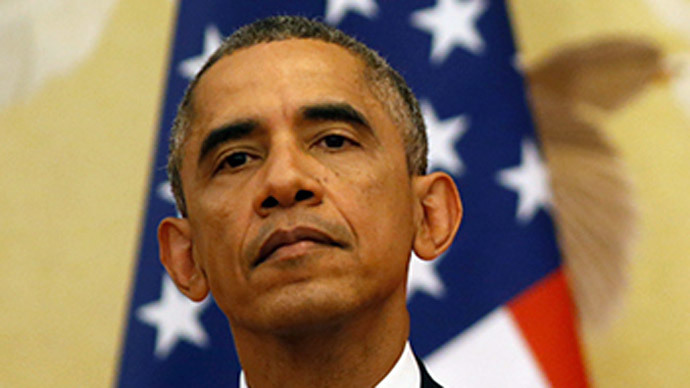US should write laws of global economy, not China - Obama

The laws of the global economy should be written by the United States and not by the likes of China according to President Obama, as concern over China’s influence is growing. Washington hopes a Pacific free trade pact will curb Beijing’s investment bank.
"When 95 percent of our potential customers live abroad, we must be sure that we are writing the rules for the global economy, not a country like China," Obama said in his special message to Congress on Thursday, RIA reports.
READ MORE: US lawmakers agree to fast-track secretive international trade deals
The statement comes after an agreement by US lawmakers to fast-track international trade bills earlier on Thursday. The White House is now looking forward to completing the Trans-Pacific Partnership agreement this year to remove trade barriers between the participating nations which account for 40 percent of the global economy and more than a third of global trade.
“Our exports support more than eleven million jobs, and we know that exporting companies pay higher wages than others. Today we have the opportunity to open even more new markets to goods and services backed by three proud words: Made in America,” Obama added.
READ MORE: $50bn Asian infrastructure bank approves 57 founding members
Meanwhile, the US and Japan are the largest economies in the 12 Pacific nations bloc and view it as a strategic economic partnership. The two countries have been voicing concerns over China’s increasing influence in Asia and did not join the Chinese Investment bank (AIIB). The AIIB is expected to challenge the Washington-based World Bank and rival Japan’s Asian Development Bank. It currently has 57 countries from 5 continents as founding members including the biggest European nations.
International trade and investment institutions are the latest contest issues between Beijing and the Washington-Tokyo alliance for influence in Asia.
“China wants to write the rules for the world’s fastest-growing region,” the US President said in his January State of the Union address to Congress. “Why should we let that happen? We should write those rules.”
Earlier on Thursday, US lawmakers agreed a deal that would “fast-track” the Obama administration’s ability to draft international trade bills and move them through Congress. It would permit President Barack Obama to expedite the process of authorizing trade deals like the Trans-Pacific Partnership.
READ MORE: TPP Uncovered: WikiLeaks releases draft of highly-secretive multi-national trade deal
Trans-Pacific Partnership agreement is the largest trade deal since the North American Free Trade Agreement of 1994. The implementation of the partnership is currently one of the major points of the Obama administration’s foreign agenda.
The agreement provides for a complete abolition of custom duties between the member countries. At the beginning it was joined by Chile, New Zealand, Brunei and Singapore and later by the United States and other Pacific countries of the Americas, Australia, Japan and several other nations.












